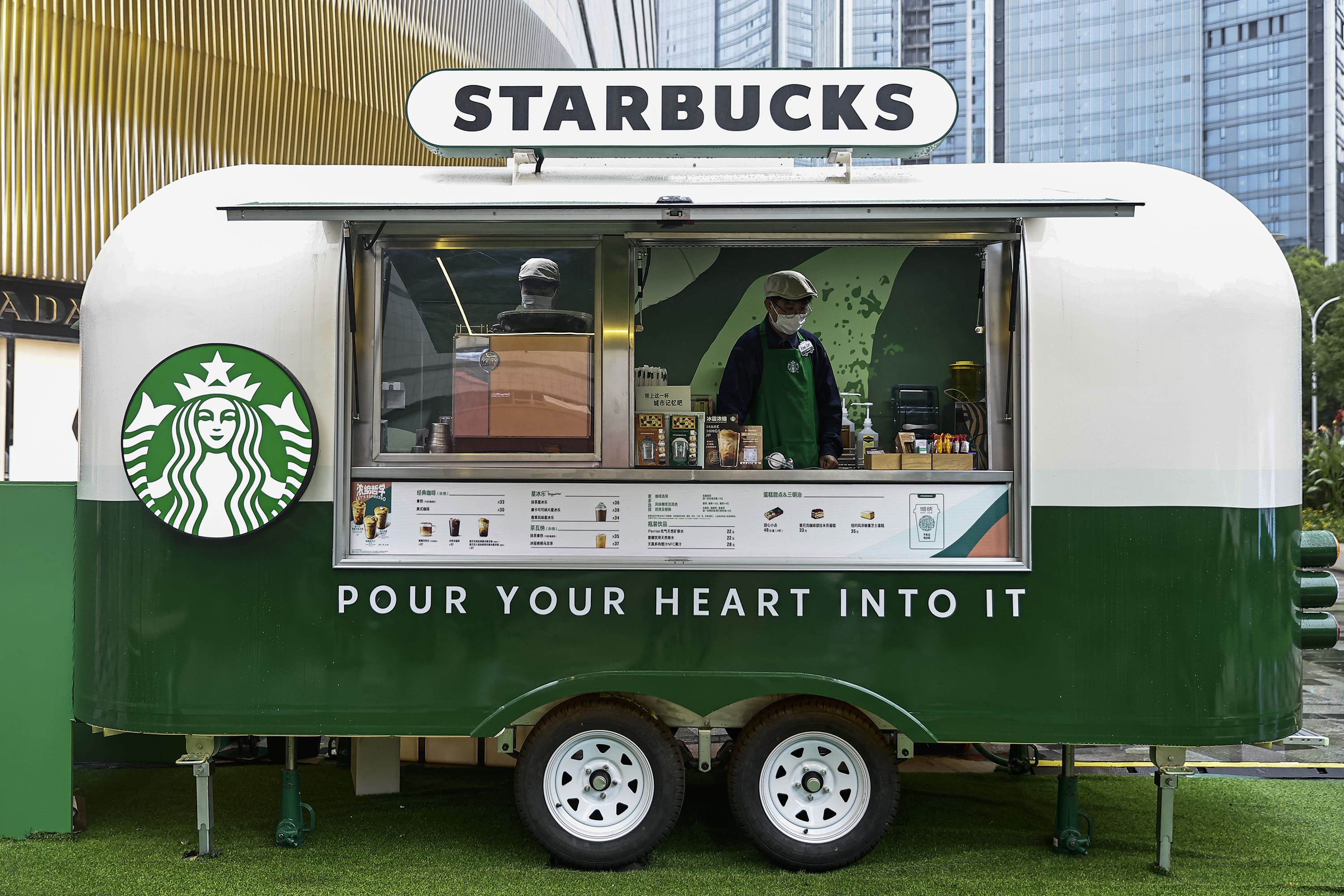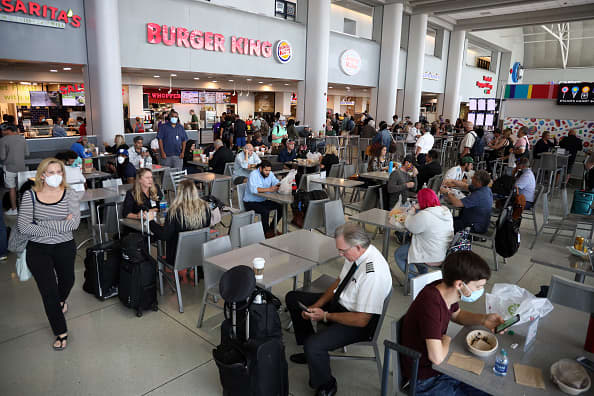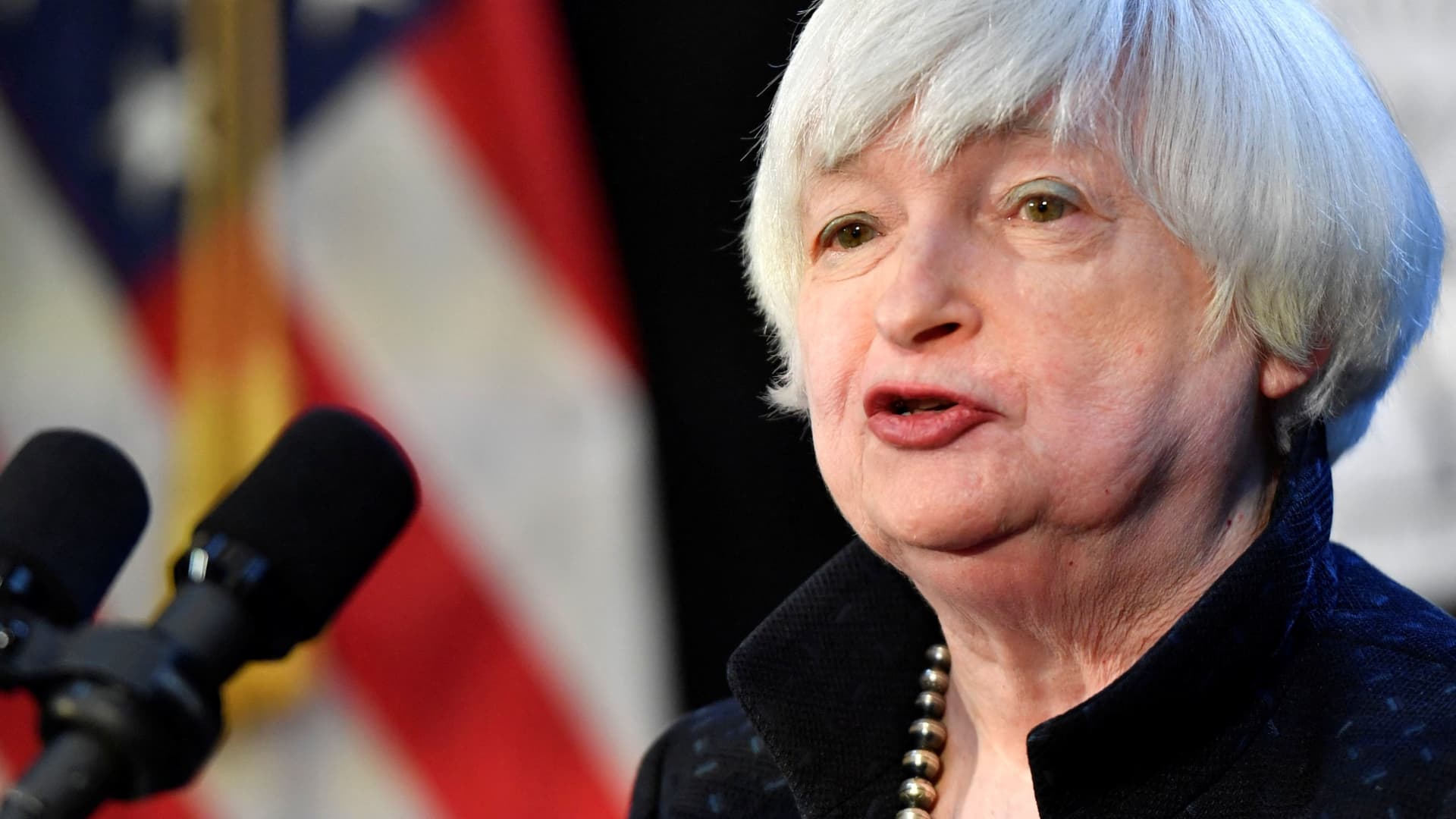Taco Bell owner Yum Brands misses revenue estimates despite soaring KFC sales
Yum Brands restaurant KFC's same-store sales climbed 13%, fueled by demand in China, its largest market.

Signage is displayed outside a Yum! Brands Inc. Taco Bell and Kentucky Fried Chicken (KFC) restaurant in Louisville, Kentucky, U.S., on Thursday, Jan. 30, 2020.
Luke Sharrett | Bloomberg | Getty Images
Yum Brands on Wednesday reported mixed quarterly results as Taco Bell's and Pizza Hut's same-store sales disappointed.
Shares of the company were up more than 1% in early trading.
Here's what Yum reported compared with what Wall Street was expecting, based on a survey of analysts by Refinitiv:
Earnings per share: $1.41 adjusted vs. $1.24 expectedRevenue: $1.69 billion vs. $1.75 billion expectedThe restaurant company reported second-quarter net income of $418 million, or $1.46 per share, up from $224 million, or 77 cents per share, a year earlier.
Excluding expenses related to its exit from Russia, refranchising gains and other items, Yum earned $1.41 per share.
Yum executives said on the company's conference call that inflation has peaked and started to slow in most developed markets. But emerging markets are still seeing inflation rise.
Net sales rose 3% to $1.69 billion. The company's digital sales increased nearly 30% in the quarter, accounting for close to half of orders.
Yum Brands' same-store sales grew 9% in the quarter, topping StreetAccount estimates of 6.9%. The company's restaurants saw growing customer traffic and market share gains, executives said.
KFC's same-store sales climbed 13%, fueled by returning demand in China, its largest market. KFC's system sales in China soared 32%, while its U.S. system sales rose 5%. Most of its U.S. growth came from low-income consumers, Yum CEO David Gibbs said.
Pizza Hut reported same-store sales growth of 4%, missing StreetAccount estimates of 6.3%. The pizza chain's domestic same-store sales rose just 1%. Some of Pizza Hut's growth comes from more solo diners, who are choosing menu items like its Melts, which are folded pizza slices that come with a dipping sauce.
Taco Bell's same-store sales also rose 4%, falling short of estimates of 4.3%. Its U.S. same-store sales increased 4%, but its international same-store sales shrank 1% in the quarter.
Taco Bell's U.S. dispute over the name "Taco Tuesday" not only ended with a smaller chain giving up the trademark, but also drove more buzz for Taco Bell than the return of the Mexican Pizza, according to Gibbs.
Most of the Mexican-inspired chain's locations are in the U.S., although it has expanded internationally in recent years.
Yum opened more than 1,000 new locations during the quarter.

 Tfoso
Tfoso 


































